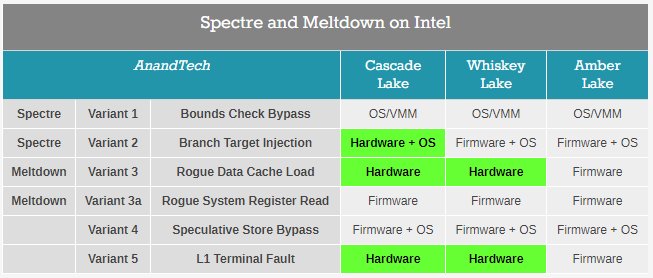gamerk316
Glorious
-Fran- :
gamerk316 :
-Fran- :
https://www.tomshardware.com/news/openbsd-disables-intel-hyper-threading-spectre,37332.html
This might be a bigger deal than we can read at face value. If SMT has inherent exploitable-by-design problems then Intel is screwed, but AMD might not be that far off. This one will be an interesting piece to follow. I wonder what the Linux camp has to say.
Cheers!
This might be a bigger deal than we can read at face value. If SMT has inherent exploitable-by-design problems then Intel is screwed, but AMD might not be that far off. This one will be an interesting piece to follow. I wonder what the Linux camp has to say.
Cheers!
Been waiting for this one.
AMD may or may not be hit by this; depends how they're managing the L1/TLB under the hood. In any case, this problem is fixable: Simply don't share the L1/TLB on HTT cores; this is likely a legacy design choice from the Core M [pre-HTT] days that Intel never needed to address before now.
I've been saying it for a while: It's time to retire Core. There's a ton of legacy problems that are starting to show, and Intel is NEVER going to address them all by fixing them one by one. They have to design a new CPU with security in mind.
My cynical self is saying "but that costs a lot of money!".
Cheers!
So does AMD gaining market share.


